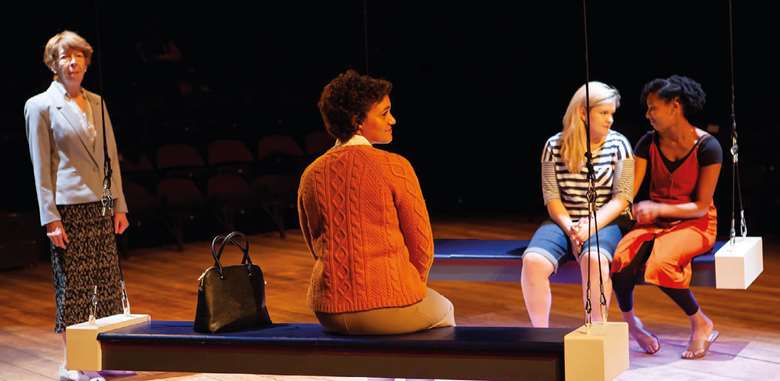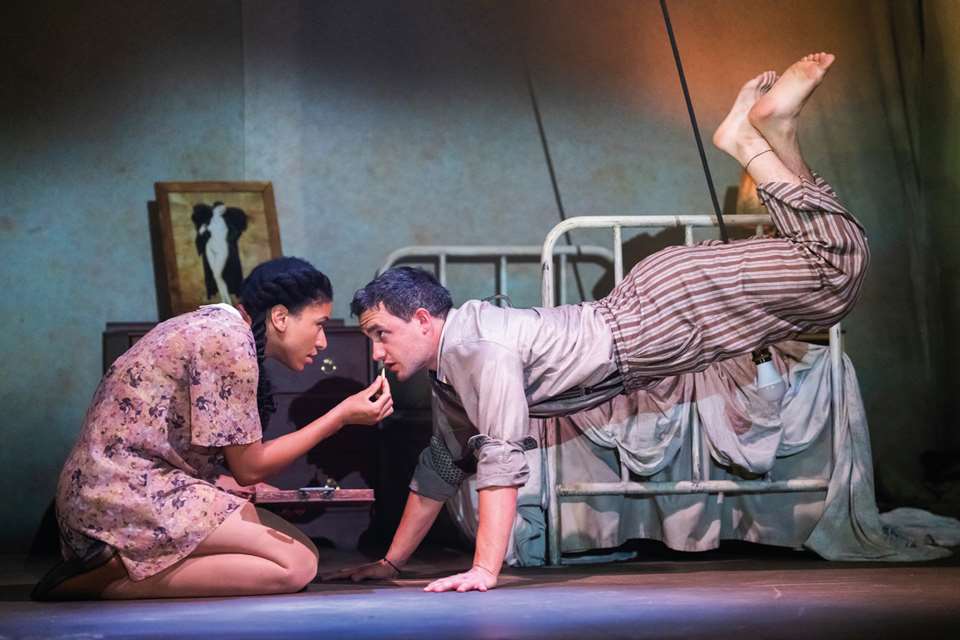Audio plays in drama lessons: Listen and learn
Hattie Fisk
Friday, December 1, 2023
What impact can the recent revival of audio plays bring to our drama lessons and beyond? Hattie Fisk has been keeping an ear to the ground.

Rachel Loincoln
In an age dominated by screens it might seem bizarre that audio plays are experiencing a resurgence. However, this revival is reshaping the way young people engage with storytelling and, in turn, their relationship with drama as a subject. But how can audio dramas offer unique benefits? Do they really have the potential to transform drama education or inspire a new generation of theatre enthusiasts?
New voices
Audio plays, also known as radio dramas or podcasts, are narrative performances brought to life through sound alone. They transport listeners to different worlds, erasing the need for visuals and relying solely on voice acting, sound effects, and music to create a vivid, immersive experience. The audio offering available is varied, stretching far beyond the limits of Radio 4's The Archers.
One of the most high-profile cases of audio plays appealing to (and featuring) students recently is the National Theatre's New Voices podcast on Audible. To celebrate 10 years of its playwriting competition for young people, New Views, the NT released a collection of 10 captivating audio plays that were written and voiced by the winners, aged between 14 and 19.
Impact
What impact can the use of audio dramas have on young people? Having spoken to a selection of students and teachers about their experiences, this is what they report:
- Imagination and creativity
Audio plays ignite the imagination, encouraging listeners to visualise the characters and settings in their own minds. This fosters creativity as it requires individuals to actively engage with the story and fill in the visual gaps themselves. For young people this is a valuable exercise in cultivating their creative and critical thinking skills. - Accessibility and inclusivity
Audio plays are highly accessible, making them a great choice for a wide audience including those with visual impairments. This inclusivity aligns with the push for diverse representation in the arts as audio plays allow for more focus on storytelling and less on the appearance of characters, enabling a broader range of voices and perspectives. - Multisensory learning
Drama as a subject is often associated with live performances, but audio plays provide a unique opportunity for students to engage with theatre using their auditory senses. This multisensory approach allows young people to explore the emotional and aesthetic dimensions of drama in a different way, broadening their understanding of the art form. - Improved listening skills
Active listening is a crucial life skill, and audio plays demand it. Students exposed to audio plays on a regular basis can enhance their listening skills, improving their ability to comprehend complex narratives and communicate effectively. - Versatility
Audio plays are engaging and versatile. They can be enjoyed in various settings and require minimal equipment. Whether listening during a commute, in the classroom or as a family activity, audio plays are a flexible tool for nurturing a love for storytelling and drama. - Storytelling craft
Audio plays offer a unique platform for teaching the art of storytelling. Young people can learn about character development, plot structure, and the power of sound and silence in conveying emotion. This knowledge is transferable to traditional theatre and film, enhancing their overall understanding of drama.
Use in the classroom
It is essential to recognise that the rise of audio plays should not replace traditional drama education but rather complement it. Theatre performances and the experience of being on stage cannot be replaced by audio plays; instead, audio plays should be integrated into drama curricula to provide a more well-rounded education. This can be achieved through a variety of methods.
Teachers can curate a selection of age-appropriate audio plays for students to analyse, critiquing voice acting and sound design. Students can also be encouraged to write and perform their audio plays, honing their storytelling and voice acting skills.
By nurturing creativity, accessibility, and storytelling skills, audio plays can inspire a new generation of theatre enthusiasts while complementing traditional theatre education. As the world continues to evolve, so too should our approach to teaching and appreciating the dramatic arts.
Listen to NT's New Voices podcast here: tinyurl.com/5b5csw4n






